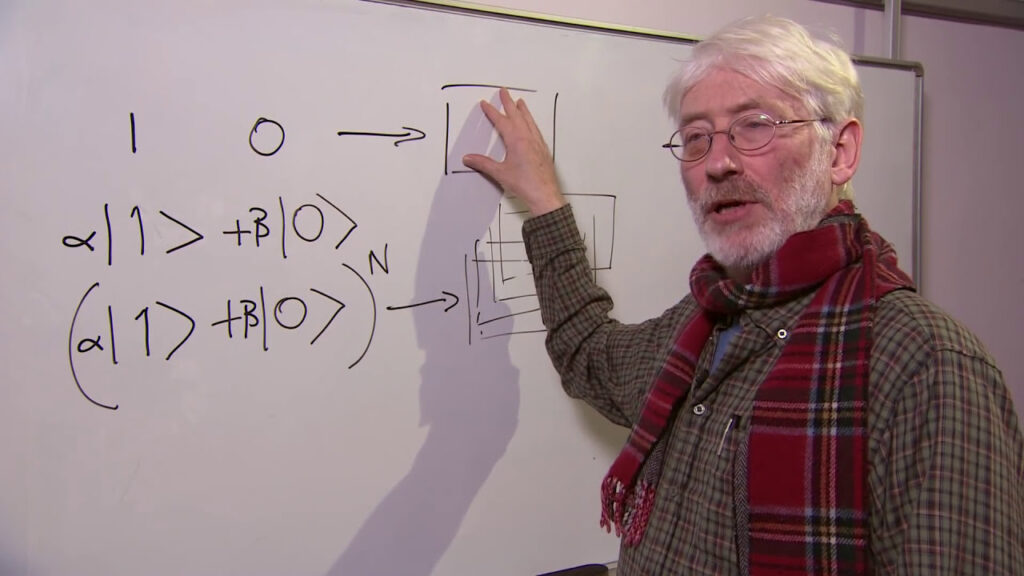Quantum computing is an emerging technology with the potential to revolutionize the world of computing. It utilizes the principles of quantum mechanics to process information and solve complex problems that are beyond the capabilities of classical computers. With its immense computing power, it has the potential to transform numerous industries and fields including finance, healthcare, and artificial intelligence.
In this blog post, we will explore the history and evolution of quantum computing, the key concepts and principles behind it, its current applications, as well as the challenges and limitations that researchers are facing in its development. We will also discuss the future prospects and potential developments in the field of quantum computing.
Introduction to Quantum Computing
To understand quantum computing, we first need to understand the difference between classical and quantum computers. Classical computers, which we use in our daily lives, use bits (binary digits) as the basic unit of information. These bits can only represent either a 0 or a 1, and information is processed in a sequential manner. On the other hand, quantum computers use quantum bits or qubits, which can represent a 0, 1, or both simultaneously through a phenomenon called superposition. This allows for parallel processing and exponentially increases the computing power of quantum computers.
The concept of quantum computing was first proposed by physicist Richard Feynman in 1982, but the idea remained largely theoretical until the late 1990s when researchers started making significant strides in its development. In 1998, IBM researchers demonstrated the first two-qubit quantum computer, paving the way for more advancements in the field.
History and Evolution of Quantum Computing

One of the key milestones in the history of quantum computing was the discovery of quantum algorithms by Peter Shor and Lov Grover in the mid-1990s. Shor’s algorithm was designed to efficiently factor large numbers, a task that would take classical computers thousands of years to solve, but could be done by a quantum computer in a matter of minutes. Grover’s algorithm, on the other hand, can be used to search unstructured databases much faster than classical algorithms.
In 2001, the first commercially available quantum computer was introduced by D-Wave Systems, but it was not a universal quantum computer and could only perform specific calculations. In 2016, Google announced that its quantum computer had solved a problem faster than any classical computer, marking a significant milestone in the evolution of quantum computing.
Key Concepts and Principles

To fully understand the potential of quantum computing, we need to explore some key concepts and principles that make it so powerful. These include superposition, entanglement, quantum gates, and quantum algorithms.
Superposition
Superposition is a principle of quantum mechanics that allows qubits to be in multiple states at the same time. In classical computing, bits can only be 0 or 1, but qubits can exist in a combination of both states simultaneously. This leads to an exponential increase in processing power, as each additional qubit doubles the amount of information that can be processed.
Entanglement
Entanglement is another fundamental concept in quantum computing. It occurs when two or more particles become connected in such a way that the state of one particle affects the state of the other, regardless of the distance between them. This phenomenon allows for instantaneous communication and has implications for secure communication and cryptography.
Quantum Gates
Quantum gates are equivalent to logic gates in classical computing, but they operate on qubits instead of bits. They manipulate the state of qubits to perform operations such as superposition, entanglement, and measurement. There are many different types of quantum gates, each with its unique function and advantages.
Quantum Algorithms
Quantum algorithms are specifically designed to run on quantum computers and take advantage of their unique capabilities. These algorithms can solve complex problems much faster than classical algorithms, making quantum computing suitable for applications such as optimization, cryptography, and machine learning.
Applications of Quantum Computing
Although still in its early stages, quantum computing has already shown great potential in solving real-world problems that are beyond the capabilities of classical computers. Some of the current applications of quantum computing include:
Optimization
Optimization is a process of finding the best possible solution to a problem. With its ability to process large amounts of data simultaneously, quantum computing can find optimal solutions to complex problems such as route optimization, supply chain management, and financial portfolio optimization.
Cryptography
The ability to manipulate qubits allows for the development of more robust encryption methods that can withstand attacks from classical computers. Quantum key distribution, which uses the principles of entanglement, promises to provide completely secure communication channels.
Artificial Intelligence
Quantum computing has the potential to significantly advance artificial intelligence by enhancing its learning and decision-making capabilities. It can also be used to develop new algorithms for machine learning and natural language processing, leading to more intelligent and efficient systems.
Challenges and Limitations
As with any emerging technology, there are challenges and limitations that researchers are facing in the development of quantum computing. Some of these include:
Decoherence
Decoherence occurs when the qubits in a quantum system interact with their environment, causing them to lose their quantum properties and behave like classical bits. This makes it challenging to maintain the delicate quantum state required for performing calculations.
Error Correction
Quantum systems are highly susceptible to errors due to decoherence or noise from the environment. Therefore, error correction techniques need to be developed to ensure the accuracy and reliability of quantum computations.
Scalability
One of the biggest challenges in quantum computing is scalability. As we increase the number of qubits, it becomes increasingly difficult to maintain the coherence and control of the system. This is a major hurdle that researchers need to overcome to achieve practical and usable quantum computers.
Future Prospects and Developments
Despite the challenges and limitations, the future of quantum computing looks incredibly promising. Researchers are continuously making advancements in the field, with the goal of achieving “quantum supremacy,” where quantum computers can perform calculations beyond the capabilities of classical computers.
Some of the potential developments in the field include:
Universal Quantum Computers
Currently, most quantum computers are specialized for specific tasks and are not considered universal. In the future, researchers aim to develop universal quantum computers that can perform any calculation efficiently.
Quantum Internet
Entanglement allows for instantaneous communication between particles, regardless of the distance between them. This could pave the way for a quantum internet, which will enable secure communication and data transfer at unprecedented speeds.
Quantum Machine Learning
Combining the power of quantum computing with machine learning has the potential to revolutionize the field. Quantum machine learning algorithms could lead to significant advancements in areas such as natural language processing, image recognition, and predictive modeling.
Conclusion
Quantum computing is still in its early stages, but it has already shown immense potential in solving complex problems and transforming various industries. With advancements in technology and research, we can expect to see more practical and powerful quantum computers in the future. As more applications and use cases are discovered, quantum computing will undoubtedly continue to advance and shape our world in ways we never thought possible.

